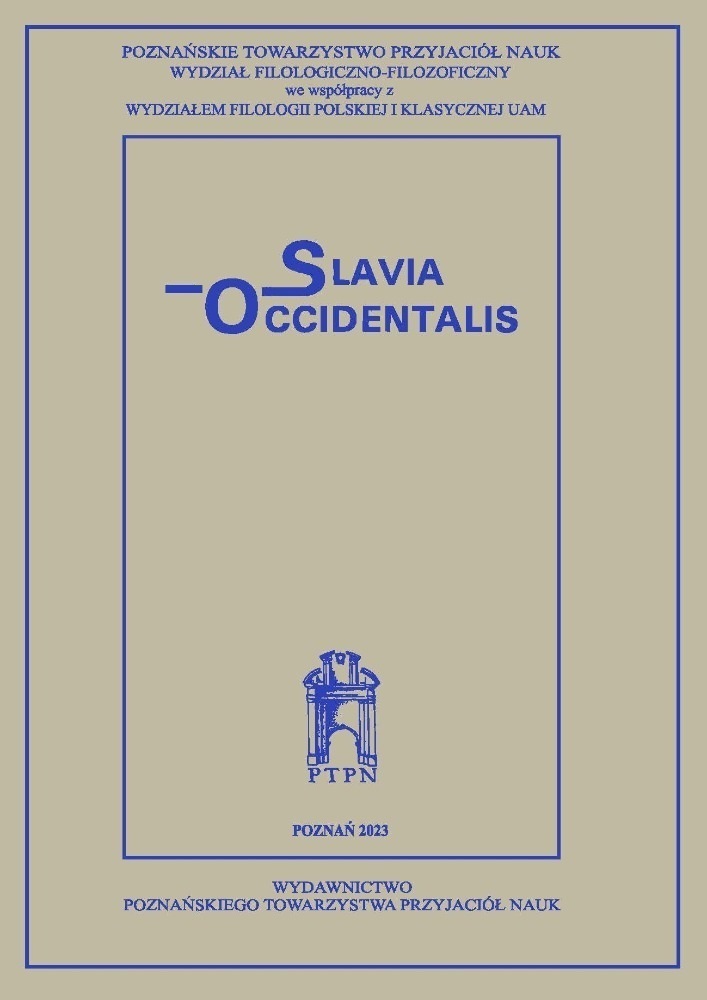Abstract
The goal of the article is to provide a description of grammar and vocabulary-related differences in the fragments of Our Father in Polish medieval songs (until the 16th century). The fragments introduced into the texts are processed to varying degrees, from being quoted, to modified or involving a free reference to the Pater Noster. Modification was the most frequently employed form. There were four major types of modifications: lexical exchange, change in word order, adding an element and removing an element. This also indicated the reasons for introducing the changes: some of them stem from the way in which the excerpts were introduced into the text (formal changes), some are intentional (application of specific forms) and affected the form of the artistic song (rhyme, rhythm, phonaesthetics). The lack of stability of the adopted fragments is also related to the way song operated as an oral form, making it vulnerable to a variety of transpositions. At the same time, however, with all these modifications, one element remained unchanged: the expression from evil which became one of the “theological and poetic formulas” used in Polish religious poetry of the Middle Ages.References
Breza E., 1991, Polszczyzna Ojcze nasz i Zdrowaś Maryjo, „Język Polski”, z. 1, s. 2–9.
Dąbrowski E., 2001, Polska wersja «Modlitwy Pańskiej», „Studia Theologica Varsaviensia” (39), nr 2, s. 184–190.
Krążyńska Z., Mika T., 1995, Architektura „Bogurodzicy”, „Slavia Occidentalis” (52), s. 52–79.
Krążyńska Z., Mika T., Słoboda A., 2015, Składnia średniowiecznej polszczyzny. Część I: Konteksty – metody – tendencje, Poznań.
Masłej D., 2015, Dlaczego w poezji późnego średniowiecza funkcjonują tylko dwa wersety z Modlitwy Pańskiej?, „Slavia Occidentalis”, t. 72, s. 141–151. DOI: https://doi.org/10.14746/so.2015.72.10
Masłej D., 2016, Modlitwa Pańska w polskim średniowieczu. Znad staropolskich rękopisów, Poznań.
Mazurkiewicz R., 2002, Polskie średniowieczne pieśni maryjne, Kraków.
Michałowska T., 1993, Między słowem mówionym a pisanym (O poezji polskiej późnego średniowiecza, w: Literatura i kultura późnego średniowiecza w Polsce, red. T. Michałowska, Warszawa, s. 83–124.
Sstp – Słownik staropolski, red. S. Urbańczyk, W. Twardzik, t. 1–11, Wrocław 1953–2002.
Wojtak M., 1992, O początkach stylu religijnego w polszczyźnie, „Stylistyka” I, s. 90–97.
License
Copyright (c) 2017 Dorota Masłej

This work is licensed under a Creative Commons Attribution-NonCommercial-NoDerivatives 4.0 International License.
